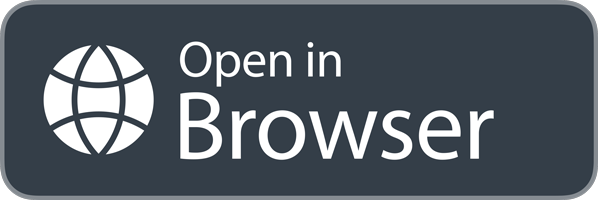10. October 2024
E-Invoice: DocuWare – the universal solution for all e-invoicing processes
The countdown is on: E-invoice will be mandatory for the B2B sector starting in January 2025 − and you can look forward to it coming into force with DocuWare's efficient invoice management.

The mandatory e-invoice proclaimed by the federal government marks a significant step towards a paperless future. It creates the basis for modern, digital administration − and significantly optimises accounting processes. The starting signal will be given at the turn of the year.
Have you already taken all precautions to implement the new standard in your business practice in accordance with the regulations?

With the DocuWare document management system, you fulfil all e-invoice requirements − completely digitally and highly automated. The intuitive and multifunctional DMS makes the transition to e-invoicing effortless and comprehensive. It ensures fast invoice processing, automated workflows, processes without media discontinuity and efficient archiving and data provision. It also guarantees maximum compliance security and can be seamlessly integrated into existing systems. Benefit from an end-to-end approach to optimising your e-invoice processes.
E-Invoice − the most important facts in brief
Definition
Machine-readable invoice − it is created, sent, received and processed electronically without media discontinuity.
Technical specifications
XML-based data formats such as XRechnung & ZUGFeRD − their structured format enables automated processing of invoice data
Legal basis
Growth Opportunities Act − it obliges the B2B sector (business-to-business) to use e-invoices from 2025 in order to reduce the administrative burden & increase efficiency in accounting. In the B2C sector (business-to-consumer), the consent of the end consumer remains a prerequisite for electronic invoice. Among other things, companies must comply with the GoBD (principles for the proper management and storage of books, records and documents in electronic form). Among other things, these regulate procedural documentation and the archiving of e-invoices.
Advantages
shorter throughput times, minimised susceptibility to errors, better traceability, reduced administration and material costs, more environmentally friendly, more adherence to deadlines, improved compliance & safety standards
Deadlines
From 1 January 2025, companies must be able to receive e-invoices. From 1 January 2026, the creation and sending of e-invoices will also be mandatory. Consequences of non-compliance include fines, tax disadvantages, exclusion from public contracts, etc.
Paper invoices and non-compliant e-invoices are permitted on a transitional basis until 2027 with the express consent of the recipient, provided the company issuing the invoice does not exceed a maximum turnover of 800,000 euros in the previous year.
The retention period for e-invoices is the same as for paper invoices and is also at least 10 years.
The introduction of national e-reporting is also expected from 2028.
Important note
E-invoices are exclusively standardised data formats for automated processing and integration into business processes. Consequently, documents converted into electronic formats such as PDFs are not included − all invoice data must be imported directly into the processing systems.
FAQ − Frequently asked questions
Which e-invoices can be processed with DocuWare in a legally compliant manner?
DocuWare has supported the processing of XRechnung and ZUGFeRD as standard for years. In addition, numerous other national structured e-invoice formats can be processed, such as Factur-X from France, FatturaPA from Italy, FACTURAe from Spain and KSEF from Poland.
What is behind the X-Rechnung & ZUGFeRD standard formats permitted in Germany?
XRechnung
XRechnung is one of the two German solutions for the EU directive and was developed by the Coordination Centre for IT Standards (KoSIT) on behalf of the IT Planning Council. It is specially designed for the exchange of invoice data between companies and public administrations and uses an XML-based format that enables automatic electronic processing.
ZUGFeRD
ZUGFeRD (Zentraler User Guide des Forums elektronische Rechnung Deutschland) is a hybrid invoice format that combines structured and visual invoices. It contains a visual representation as a PDF file (PDF/A3) and structured invoice data in XML format so that invoices can be read both automatically and visually.
How does DocuWare enable the automatic processing of e-invoice data?
DocuWare has an automatic data extraction function so that all information such as invoice number, date, amount, invoicing party, due date, etc. can be extracted directly from the machine-readable fields of the electronic invoice. The DMS solution can be used to initiate all the necessary process steps, such as internal approvals, transfer to ERP systems (e.g. SAP, Microsoft Dynamics, DATEV), financial systems for payment processing, archiving, etc..
Is DocuWare available in the Cloud?
Yes, DocuWare is available in the Cloud. This solution offers:
- Access from anywhere for mobile working
- Automatic updates, without maintenance effort
- High security standards such as encryption and GDPR compliance
- Fast implementation without local installation
- Cost efficiency by eliminating expensive hardware and maintenance costs
DocuWare Cloud is ideal for companies looking for flexibility and easy scalability.
Is DocuWare compatible with existing ERP systems?
DocuWare can be easily integrated into existing ERP systems such as SAP, Microsoft Dynamics, DATEV, etc. to enable automatic posting and processing of invoice data. This saves time and minimises errors during manual data entry.
How does DocuWare support GoBD compliance when archiving invoices?
DocuWare stores invoices in a secure digital archive and automatically transfers relevant values from the XML files as index data. In this way, you fulfil the GoBD retention guidelines by being able to prepare documents seamlessly for tax audits. You can also release invoices for posting in accordance with defined rules or route them to approval workflows. Finally, a posting record is generated that can be transferred directly to your ERP system to minimise manual data entry.
How does the DocuWare Cloud DMS ensure the auditability of e-invoices?
DocuWare ensures the auditability of e-invoices by protecting them from subsequent changes, manipulation and forgery. It enables seamless tracking of all changes to the documents and makes it easier to find the required receipts quickly. In addition, user rights can be assigned to control access to the invoices and prevent unauthorised access.
What steps should be taken to prepare for mandatory e-invoicing?
To prepare for the e-invoicing obligation, companies should go through the following steps:
- Current process analysis: companies need to analyse their existing invoice processes and ensure that they meet the legal requirements. With the help of DocuWare, all processes can be optimised, from invoice capture to invoice processing to invoice payment.
- Checking the IT infrastructure: A suitable IT infrastructure is essential for efficient e-invoice processing. DocuWare ensures that relevant formats such as XRechnung and ZUGFeRD can be processed and that the necessary IT solutions can be integrated for further processing.
- Training of employees: The introduction of e-invoicing requires employees to be trained in the new legal requirements and in the use of DocuWare. As a DocuWare Partner, edr software provides appropriate system training.
E-Invoices ─ Process-optimised invoice management with DocuWare
The top facts at a glance

- automatic data extraction
- seamless integration into external systems (ERP, CRM, etc.)
- efficient workflow automation, e.g. approvals/releases
- validated invoice data through check mechanisms
- secure archiving in accordance with GoBD
- easy retrievability
- legal compliance, e.g. e-signatures
- fact-based reporting
- highest security standards, e.g. encryption/access controls
- automated tax calculation
- status tracking
- automatic reminder system
- compliance according to international standards
- intuitive user interface
- mobile access & editing via app






